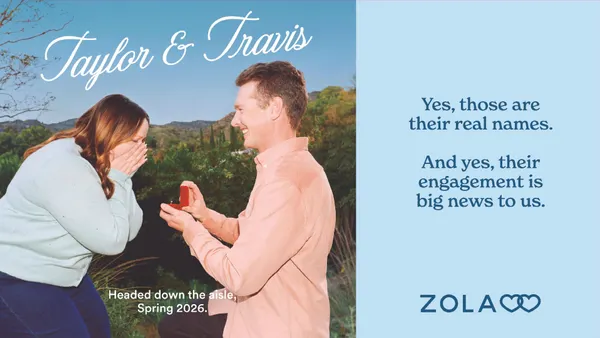Dive Brief:
- People are less willing to reach out to brands as the coronavirus pandemic leaves them feeling fragmented and disconnected, according to a consumer confidence analysis that Forrester Research shared with Marketing Dive. The firm's four-part "consumer energy index" that measures eagerness to connect with brands fell 10 points to a record low this month from two years earlier.
- The "identity" part of the index declined the most, followed by the "trust" measurement, showing that consumers are less optimistic that people and companies will keep their promises. The "novelty" score changed the least, indicating that consumers still want something new.
- The "efficacy" measurement of the index fell as well, signaling that consumers are less likely to feel in control of their circumstances than they were two years ago. Still, the indicator is the highest part of the consumer energy index, showing that consumers are still looking for something to improve their experience.
Dive Insight:
Forrester's deteriorating consumer confidence measures provide an early indication of how much the coronavirus pandemic has negatively affected people's emotions, a trend with significant implications for marketers. The declining energy index means that consumers are more cautious, and that brands shouldn't expect them to be buy their "next big thing," Anjai Lai, a senior analyst at Forrester, said in the report.
"The most important emotions driving consumers toward your brand, product, or service are not strong enough to compel action," Lai wrote. "At this moment, consumers don't have the emotional energy to engage with, spend with or recommend your brand."
Aside from the logistical challenges that the pandemic presents for marketers, it also leaves consumers unwilling to be brand advocates or spend frivolously, Forrester suggests.
Consumer fears about COVID-19, the illness caused by the coronavirus, haven't led them "to retreat to the safety of what's familiar" any more than two years ago. Instead, consumers are looking for entertainment, information or adventure "to fill the social void." The consulting firm recommends that marketers develop campaigns that are in step with consumer attitudes. While people aren't ready to act on brand messaging, Forrester's somewhat steady "novelty" rating indicates that consumers are open to receiving those messages.
Forrester cites carmaker Ford as an example of a company that has revamped campaigns to match the current public mood. Ford replaced ads for vehicles with uplifting messages spotlighting its coronavirus relief program for car buyers, showing how brands can address the isolation that consumers feel during the pandemic. Brands also can show competency and integrity to help neutralize consumer skepticism, or highlight their commitment to assisting customers in regaining a sense of control, according to Forrester.
Forrester recommends that marketers focus on consumer trust as they reset their company goals amid falling sales and possibly suspended operations. Among the consulting firm's measurements of consumer sentiment, the "trust" rating has the most room for improvement during the pandemic. Brands can work to enhance consumer trust with marketing content and outreach efforts that resonate with customers. By demonstrating how they prioritize customer well-being over financial concerns during the COVID-19 crisis, brands can cultivate a lasting sense of trustworthiness, according to Forrester.
While many advertisers are pulling back on marketing activities amid plunging sales and halted operations, several brands have revamped their messaging during the pandemic. Sportswear giant Nike, as one example, this week dropped the subscription fees for its workout apps, showing how it prioritizes the health of customers who are stuck indoors over financial gains. Busch Beer this week started livestreaming a trivia game show on Facebook to engage with isolated consumers and to raise money for bartenders facing severe financial hardship with the closure of bars and restaurants. Like Ford, carmakers Hyundai, Toyota and Lexus have revamped their planned ads to show support for employees and customers during a very stressful time.











